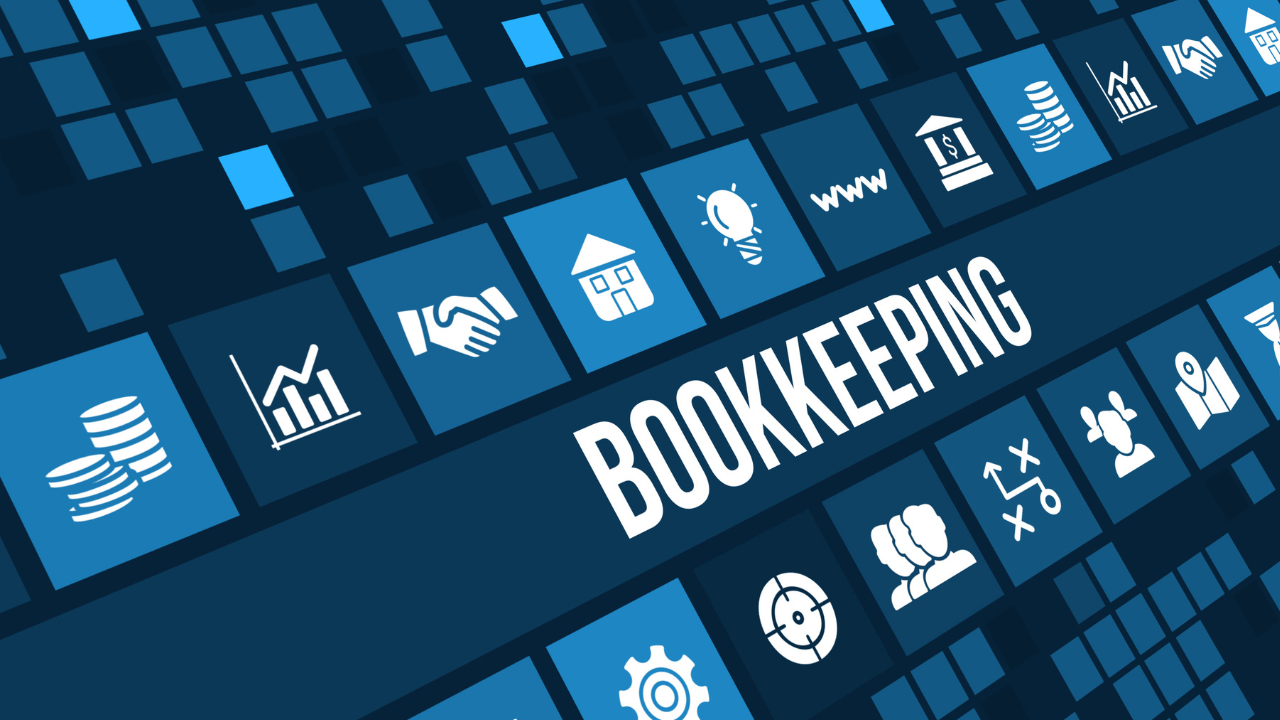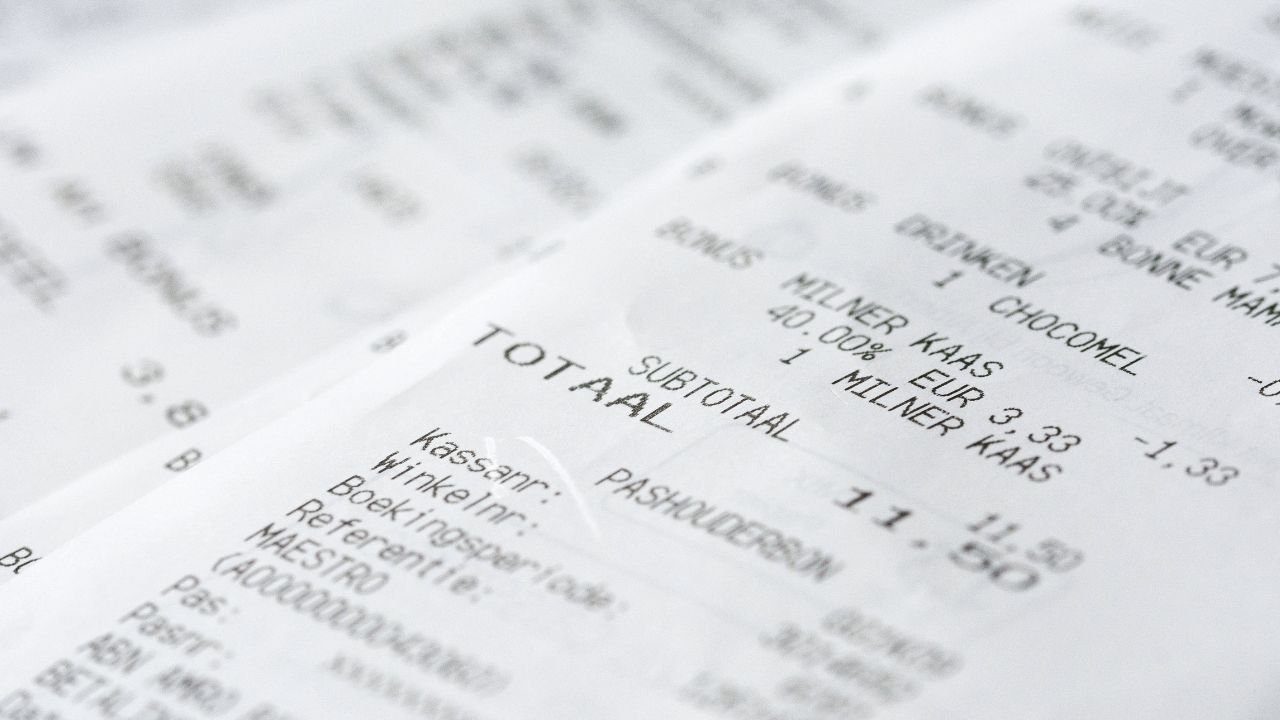Language:
9 Bookkeeping Tips to Maximize Your Tax Deductions

Dreading tax season? You’re not alone. Every year, business owners scramble to gather receipts, categorize expenses, and face down a mountain of paperwork.
But what if there was a way to make tax season less stressful and save you money?
Answer — good bookkeeping. Why? Because good bookkeeping allows you to maximize your tax deductions. You can subtract these business expenses from your income, lowering your taxable amount.
The more deductions you can claim, the less you owe the government. Thus, you have more cash to reinvest in your business or simply put it in your pocket.
Here’s the best part: you don’t need to be an accounting whiz to benefit from good bookkeeping. In this article, we’ll break down 9 simple tips to transform your bookkeeping habits and help you maximize those tax deductions.
From separating personal and business expenses to utilizing software, we’ll cover everything you need to know to approach tax season confidently.
Also, if you’d rather just focus on your entrepreneurial journey, doola’s All-In-One-Accounting is here to manage your finances for you!
1. Separate Personal and Business Expenses
The first step to maximizing deductions is to create a clear separation between your personal life and your business.
Why? Imagine baking a delicious cake without separating the dry and wet ingredients. It’s a recipe for disaster! The same goes for your business finances. Here’s why this tip is important:
- Accurate Bookkeeping: Mixing finances makes it hard to see where your business money goes. Did you buy that fancy coffee for yourself or a client meeting? Separating expenses keeps things clear and ensures your business records are accurate.
- Tax Filing Confidence: The IRS must clearly see your business income and expenses during tax season. When everything’s mixed, sorting it out becomes a nightmare. Separate finances make filing your taxes a breeze.
- Maximizing Deductions: You can only deduct legitimate business expenses. If personal expenses are mixed in, they get buried, and you lose out on potential tax savings. Separation ensures you can identify and claim all your eligible deductions.
Now, let’s address the reality that some expenses might blur the lines. For example, a portion of your internet bill might be considered a business expense if you work from home. How to handle these mixed-use situations?
Keep a record of how much you use an item for business purposes.
This allows you to allocate a fair share of the expense as a business deduction. Or, if you use your personal phone or internet for business calls, separate it with a dedicated business line.
However, the ultimate solution to this debacle is to open a dedicated business bank account and credit card for business transactions.
This makes separation automatic — all your business expenses are neatly categorized in one place.
Plus, it gives you a clear view of your business cash flow.
2. Categorize Your Business Expenses
Imagine searching through a messy toolbox for the right screwdriver. It’s frustrating, right? Categorizing your business expenses is like organizing that toolbox.
It makes finding what you need (tax deductions) much easier.
So, why is categorizing expenses such a big deal? Here’s the lowdown:
- Easy Record-Keeping: Tracking becomes a chore when your expenses are scattered everywhere. Categorizing keeps everything organized, saving you time and frustration.
- Tax Deductions: The IRS requires organized records. When expenses are neatly categorized, identifying potential deductions becomes easy.
- Budgeting: Categorizing expenses gives you a clear picture of where your business money goes. This empowers you to make informed financial decisions and helps you create realistic budgets.
Here are some common deductions that most businesses can use:
- Office Supplies
- Marketing and Advertising
- Rent and Utilities
- Travel
- Equipment and Software
These are just a few examples, and the best categories for your business will depend on its specific needs. The key is to choose a system that works for you and stick to it.
Here’s a bonus tip — consider using bookkeeping software! Many software programs offer automatic expense categorization. This saves you time and ensures all your expenses are neatly sorted into the right buckets.
By categorizing your business expenses, you’re not just making things easier — you’re setting yourself up to identify and claim all the tax deductions you deserve. It’s a win-win!
3. Track Every Receipt and Invoice

Receipts and invoices might seem like boring paper clutter, but these little slips of paper hold the key to unlocking various tax deductions. But the trick is, you have to hold onto them — every single one.
Why? Because when you claim a deduction, the IRS needs to see evidence that the expense actually happened. Receipts and invoices help provide the proof they need to approve your deductions.
Now, how you store them is up to you. Here are your options:
- Classic Paper Trail: The old-fashioned way! Keep receipts and invoices in labeled folders, categorized by expense type or date. This works well but can get bulky and prone to losing papers.
- Digital Storage: Scan your receipts and invoices using a scanner or a phone app. This saves space and makes them easily searchable by keyword. Plus, you can store them securely in the cloud.
Speaking of apps, handy receipt-scanning apps are available to streamline the process. These apps can automatically extract key information from the receipt, making categorization and record-keeping even easier.
Finally, how should you organize your receipts? You can organize receipts by expense category (e.g., office supplies, travel). This makes it easy to find specific deductions when needed.
You can also organize receipts by date. This is helpful if you need to track expenses over a specific period.
No matter which method you choose, consistency is key. Develop a system that works for you and stick to it religiously. Remember, a little organization now can save you big bucks later!
4. Understand What’s Deductible
Feeling lost in the land of tax deductions? Don’t worry, we’ve got you covered!
Let’s break it down — tax deductions are expenses you can subtract from your business income. This lowers your taxable income, meaning you owe less in taxes. It’s like getting a discount on your tax bill.
However, not all business expenses are created equal. The IRS has specific rules about what qualifies as a deductible expense.
Here are some common categories that typically get the green light:
- Business Essentials: Rent for your office space, utilities like internet and electricity, basic office supplies — anything you need to keep your business running smoothly.
- Travel: Mileage driven for business trips, flights, and hotels for conferences.
- Gearing Up: Equipment like computers, printers, and software you use to run your business can be deducted over time.
- Spreading the Word: Marketing and advertising costs to attract customers, website hosting fees, and social media advertising — are all part of the game when it comes to growing your business and are often deductible.
These are just a few examples, and the specific deductions available to you will depend on your business type. But here are some hidden gems you might be overlooking:
- Home Office: If you work from home, you can deduct a portion of your rent, utilities, and even internet expenses as a home office expense.
- Learning Curve: Continuing education courses or professional development workshops related to your business can be deductible expenses.
Now, one more thing to remember — the difference between ordinary and capital expenses. Ordinary expenses are the everyday costs of running your business. They are typically fully deductible in the year they are incurred.
On the other hand, capital expenses are larger investments in assets with a useful life of more than one year.
They are not fully deductible at once but are depreciated over time.
Understanding the difference between these two categories is important for maximizing your deductions.
Remember, this is just a general overview, and tax laws can get tricky. For specific advice on what deductions apply to your unique business situation, consulting with a qualified tax professional is always best.
We can help you navigate the complexities of tax deductions and ensure you claim everything you’re entitled to.
5. Keep Detailed Records of Business Miles
Do you travel for business meetings or client visits? Great! Here’s a money-saving secret — those miles you drive can translate into tax deductions.
The IRS allows you to deduct the cost of operating your vehicle for business purposes. This means every business mile you rack up can help lower your tax bill.
The IRS offers a standard mileage rate. This rate reflects the average cost of owning and operating a vehicle, covering gas, maintenance, and depreciation.
In 2024, the standard mileage rate is $.67 per mile. So, for every business mile you drive, you can deduct $.67 on your taxes.
To claim this deduction, you need to track your business miles meticulously. Here are some ways to do it:
- Mileage Log: Keep a dedicated mileage log. Record the date, starting and ending odometer readings, purpose of the trip, and total business miles driven for each trip.
- GPS Trackers: Handy GPS tracking apps can automatically log your business miles. These apps can be a real time-saver if you have a clear way to distinguish business from personal trips.
No matter which method you choose, consistency is key. Track your miles every single day, even if it’s just a short trip to the bank for a business deposit.
Here’s an extra tip to maximize your deduction power — document the purpose of each business trip. This could be a quick note in your mileage log, an email confirmation of a meeting, or a client invoice.
Remember, having clear documentation helps support your deduction claims.
6. Utilize Bookkeeping Software

Feeling overwhelmed by spreadsheets and mountains of receipts? Bookkeeping software can be your go-to. Here’s how it simplifies bookkeeping and helps you snag those tax deductions:
- Expense Categorization: Most accounting software programs offer automatic expense categorization. Simply enter your purchase details, and the software will categorize them. This saves you time and ensures all your expenses are neatly organized.
- Receipt Rescue: Some software programs allow you to scan or upload receipts directly into the system. This eliminates the risk of losing receipts and keeps everything in one digital location. Plus, you can easily search for specific receipts when needed.
- Tax Report Ready: Accounting software programs generate detailed tax reports summarizing your income and expenses by category. This simplifies tax filing and highlights potential deductions you might have missed.
By utilizing software, you’re streamlining your bookkeeping process. Plus, you’re setting yourself up for success come tax season.
You’ll save time, stay organized, and have all the necessary information to claim every tax deduction you deserve.
7. Automate What You Can
Bookkeeping can feel like a never-ending to-do list. But what if you could free up your time and improve accuracy simultaneously? Enter automation.
By automating repetitive tasks, you’re streamlining your bookkeeping and saving yourself valuable time.
Here’s how automating bookkeeping tasks can be a game-changer:
- Bank Statement Reconciliation: This can be really time taking. Many accounting software programs let you simply connect your bank account. Then, the software automatically matches your bank transactions with your records.
- Bill Payments: You can set up automatic bill payments through your accounting software or bank account. This ensures your bills are paid on time and avoids late fees.
- Deduction Detection: Automation helps catch even the smallest business expenses. This means you’re less likely to overlook potential deductions and thus maximize your tax savings.
By automating what you can, you’re streamlining your bookkeeping process, ensuring accuracy, and potentially uncovering deductions. Now, you can spend less time crunching numbers and more time focusing on what really matters — running your business.
8. Reconcile Bank Statements Regularly
Your bank statement is like a business financial report card. But just like any report, it can have errors. That’s where bank reconciliation comes in. It’s the process of double-checking your bank statements.
Here’s why it matters:
- Regular reconciliation helps identify discrepancies between your bank statements and your accounting software. Catching errors early prevents them from snowballing and messing up your financial picture.
- Missed deductions can be hidden in those bank statement discrepancies. Bank reconciliation helps you uncover and claim all the deductions.
The process itself is quite simple. You compare your bank statement to your accounting records, line by line. Look for any outstanding checks, deposits not yet reflected, or bank fees you might have missed. Once you identify any differences, you adjust your records accordingly.
By reconciling your bank statements regularly (monthly is a good rule of thumb), you’re ensuring the accuracy of your bookkeeping and preventing missed deductions.
It’s a small investment of time that can save you big bucks come tax season.
9. Work with a Tax Professional
Feeling a little overwhelmed by the world of taxes? Don’t worry, you don’t have to do it alone!
Consulting a tax professional can be a game-changer when maximizing your deductions and confidently navigating tax season.
For starters, a tax professional has the knowledge and expertise to understand tax intricacies and ensure you claim all the deductions you’re entitled to. They can also help you stay up-to-date on any new tax breaks or regulations.
Tax compliance is crucial, and a tax professional can ensure your records are in order and your filings are accurate. This minimizes the risk of audits and potential penalties down the line.
Now, there are different types of tax professionals you can consider:
- Enrolled Agents (EAs): These individuals are federally authorized to represent taxpayers before the IRS.
- Certified Public Accountants (CPAs): While not all CPAs specialize in taxes, many offer tax preparation and planning services.
- Tax Attorneys: A tax attorney might be necessary for complex tax situations.
Choosing the right tax professional depends on your specific needs and budget. Remember, a good tax professional is an investment, not just an expense. Their expertise can save you money on taxes and give you peace of mind.
Always Be in the Good Books With doola Bookkeeping

Here at doola, we understand the unique bookkeeping needs of all scales of businesses.
That’s why we offer a bookkeeping packages that streamline bookkeeping tasks, even for those without an accounting background.
Our network includes Certified Public Accountants (CPAs) and experienced bookkeepers who can provide your specialized assistance for more complex tasks or situations requiring in-depth analysis.
This approach ensures you get comprehensive financial management while maintaining control over your data.
Ready to streamline your finances? Book a demo today! We’ll help you explore how our services can free up your time and keep your finances on track.



